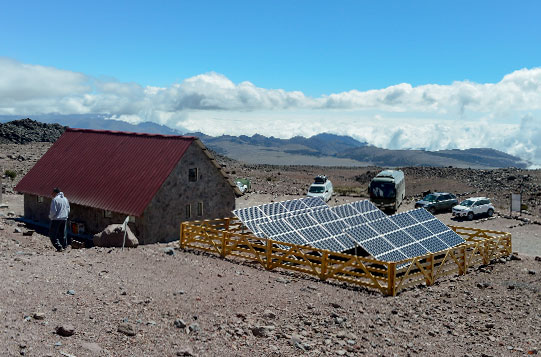

Trained researchers from European research infrastructures and LAC R&I entities on how to incorporate social perspective on their research about energy technologies.
Mobilities for Social impact in LAC and in Spain-Portugal will be carried out as the phase I (design) and phase II (fieldwork) of an ethnographic study related to policies on lithium, green hydrogen and renewable energies.
Ethnographic research and subsequent publication on the social impacts of energy transition in case studies of specific policies focused on lithium, green hydrogen and renewable energies.
An ethnographic study will be carried out the phase III (systematization and paper writing) and the phase IV (publication and presentation of results) of the ethnographic research.
Virtual thematic event about social impact in energy transition.
Climate change is not just an environmental problem, but also an economic, political, social and security one. The energy transition needs to be a green transition. Energy transition is a path born from different scenarios. One of the most notable causes is climate change; therefore, any step in favor of energy transition cannot be taken to the detriment of the Earth. Despite this, there are several processes of that transition that highly impact environments.

Research infrastructure cooperation for energy transition between European and Latin American and the Caribbean countries

Funded by the European Union. Views and opinions expressed are however those of the author(s) only and do not necessarily reflect those of the European Union. Neither the European Union nor the granting authority can be held responsible for them.
EULAC ENERGYTRAN © 2026 · All rigths reserved
EULAC ENERGYTRAN © 2026
All rigths reserved

Research infrastructure cooperation for energy
transition between European and Latin American
and the Caribbean countries
EULAC ENERGYTRAN © 2026
All rights reserved
To provide the best experiences, we use technologies like cookies to store and/or access device information.